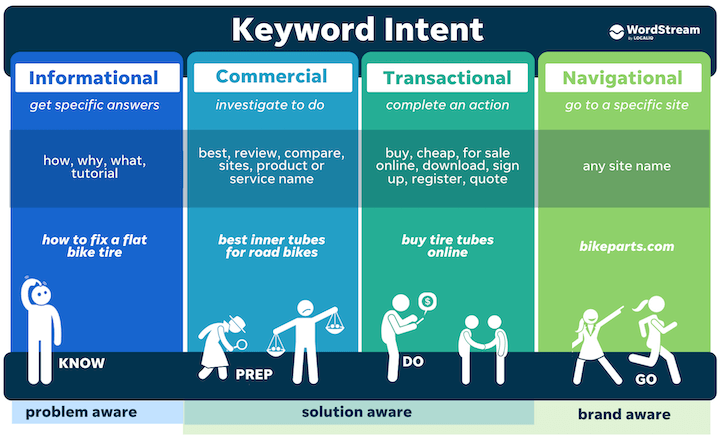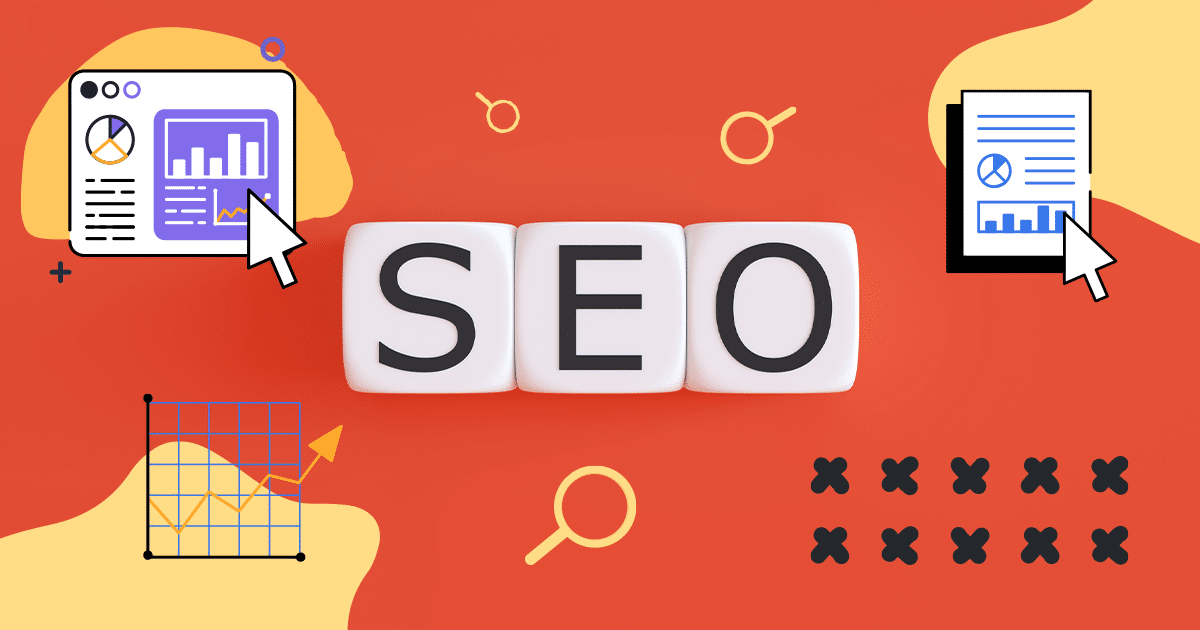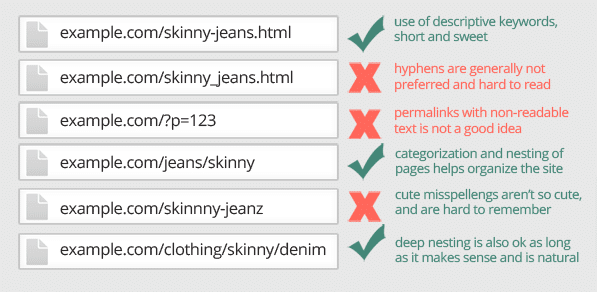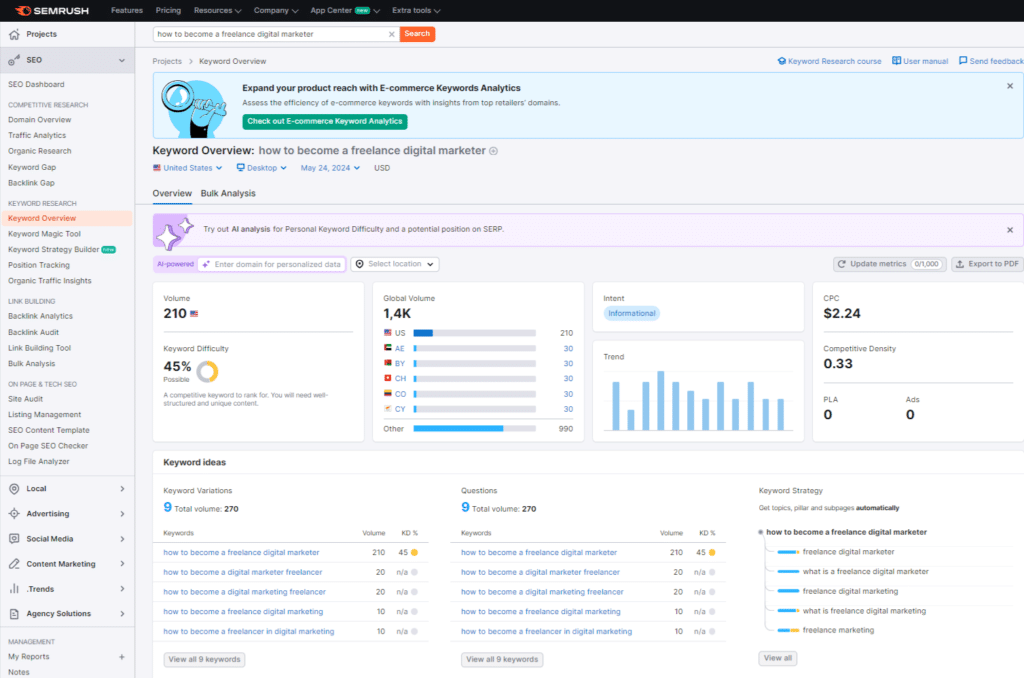Unleash the power of SEO with this comprehensive guide for beginners. Learn the basics to boost your online presence.

Image courtesy of via DALL-E 3
Table of Contents
Introduction to SEO
Search Engine Optimization, commonly known as SEO, is all about making sure that websites can be found easily on the internet. Imagine you have a favorite book in a library, but you can’t remember where it is. SEO helps people search for information online just like finding that book in the library.
What is SEO?
SEO stands for Search Engine Optimization, which means making changes to websites so that they show up on search engines like Google. Just like magic, SEO helps websites appear in search results when people look for something specific.
Why is SEO Important?
SEO is super important because it makes it easier for people to find the information they need quickly and easily. Think of SEO as a treasure map that leads you to the exact spot where the treasure (information) is hidden on the internet.
Keywords and Their Importance
Keywords are the specific words or phrases that people type into search engines like Google when they are looking for information. These words are crucial because they help search engines understand what a website is about and when to show it to someone searching for those terms.
Choosing the Right Keywords
When creating content for a website, it’s essential to choose the right keywords to target. By selecting relevant and popular keywords related to the content, the website becomes more visible to users searching for that information. This visibility can lead to more traffic and potential customers visiting the site.
On-Page SEO Techniques
Meta tags are like labels that tell search engines what your website is about. They are hidden in the code of your website and help search engines understand the content of each page. By using meta tags, you can provide information about your page’s title, description, and keywords. This helps search engines display your website in relevant search results.

Image courtesy of rockcontent.com via Google Images
Optimizing Content
When it comes to on-page SEO, content optimization plays a crucial role in improving your website’s visibility. Creating high-quality, informative, and easy-to-read content not only attracts visitors but also helps search engines understand what your website is all about. By using relevant keywords naturally in your content and structuring it properly with headings and subheadings, you can enhance your on-page SEO performance.
Off-Page SEO Techniques
When it comes to improving a website’s ranking on search engines, off-page SEO techniques play a vital role. These are actions taken outside the website itself to enhance its visibility and credibility across the internet. Let’s delve into two key off-page SEO strategies: building backlinks and utilizing social media.
Building Backlinks
Backlinks are links from other websites that direct users to your site. Think of them as upvotes for your content in the eyes of search engines. The more high-quality backlinks you have, the more authority and trustworthiness your website is perceived to have. This can significantly boost your site’s ranking on search engine results pages.
To acquire backlinks, you can reach out to other websites and request them to link back to your content. Creating valuable and engaging content that others in your industry would find useful is a great way to naturally attract backlinks. Remember, quality over quantity is key – focus on getting backlinks from reputable and relevant websites.
Using Social Media
Social media platforms have become powerful tools for off-page SEO. When you share your website’s content on social media channels like Facebook, Twitter, or LinkedIn, you not only increase its visibility but also drive traffic back to your site. The more your content is shared and liked on social media, the more people will see it, visit your website, and potentially become customers.
Engage with your audience on social media by responding to comments, sharing industry news, and posting updates about your products or services. By actively participating on social media, you can build a loyal following that will not only boost your website’s traffic but also improve its credibility in the eyes of search engines.
Technical SEO Basics
Have you ever waited for a website to load and felt like it took forever? Well, that slow loading time can actually affect how well a website ranks on search engines like Google. When a website loads quickly, it provides a better experience for visitors, and search engines like to prioritize sites that are fast and efficient. To help make a website faster, images can be optimized by reducing their size without losing quality. Additionally, eliminating unnecessary plugins and reducing server response time can also help speed up a website.

Image courtesy of rockcontent.com via Google Images
Making the Site Mobile-Friendly
Did you know that more people are browsing the internet on their phones and tablets than ever before? That’s why it’s crucial for websites to work well on mobile devices too. If a site isn’t mobile-friendly, it could lose out on potential visitors because search engines consider mobile-friendliness when ranking websites. To ensure a website is mobile-friendly, responsive design can be used, which means the site automatically adjusts to fit different screen sizes. Making buttons and links easier to tap on a touchscreen is also essential for a smooth mobile browsing experience.
Analyzing SEO Performance
When you want to know if your SEO efforts are paying off, there are tools like Google Analytics that can help. These tools track how many people are visiting your website, where they’re coming from, and what they’re doing on your site. By using these analytics tools, you can get valuable insights into your website’s performance and make informed decisions on how to improve your SEO strategy.
Tracking Keyword Rankings
Tracking keyword rankings is another essential aspect of analyzing SEO performance. By keeping an eye on how well your chosen keywords are doing on search engine results pages, you can see if your SEO efforts are working effectively. Knowing where your keywords rank can help you identify areas for improvement and adjust your strategy accordingly to boost your website’s visibility.
SEO Best Practices
In the world of Search Engine Optimization (SEO), following the best practices is key to improving your website’s visibility and ranking on search engines like Google. By utilizing ethical and effective techniques, you can boost your site’s performance and reach a wider audience. Let’s explore some essential SEO best practices.

Image courtesy of rockcontent.com via Google Images
White Hat SEO
White hat SEO refers to the use of ethical and legitimate tactics to improve a website’s search engine ranking. By following search engine guidelines and focusing on creating valuable content for users, white hat SEO builds a sustainable online presence. It involves optimizing your website with relevant keywords, creating high-quality content, and building backlinks from reputable sources. Engaging in white hat SEO practices not only helps improve your search rankings but also establishes credibility and trust with your audience.
Avoiding Black Hat SEO
On the flip side, black hat SEO involves using deceptive and manipulative techniques to artificially boost a website’s ranking. Tactics like keyword stuffing, cloaking, and buying links violate search engine guidelines and can result in penalties that harm your site’s reputation. It’s crucial to steer clear of black hat SEO practices as they can lead to your website being deindexed or banned from search engine results altogether. By prioritizing ethical and white hat SEO strategies, you can ensure long-term success and a positive online presence.
Keeping Up with SEO Trends
Staying updated with the latest SEO trends is crucial for website success. One way to do this is by following SEO news. SEO news websites and blogs regularly share updates on new algorithms, changes in search engine policies, and emerging trends in the digital marketing world. By keeping an eye on these updates, website owners can adapt their SEO strategies to stay ahead of the competition and maintain high rankings on search engines like Google.
Learning from Experts
Another effective way to keep up with SEO trends is by learning from experts in the field. SEO experts are professionals who specialize in optimizing websites for search engines and staying updated on the latest industry developments. Following these experts on social media, reading their blogs, and attending webinars or conferences where they speak can provide valuable insights into the most effective SEO techniques and strategies. By learning from experts, website owners can gain valuable knowledge to improve their SEO efforts and stay competitive in the ever-evolving digital landscape.
Summary
In this guide, we’ve covered the basics of SEO, or Search Engine Optimization, which is crucial for websites to be easily found on search engines like Google. By understanding SEO, websites can improve their visibility and help people find the information they need quickly and easily.

Image courtesy of rockcontent.com via Google Images
Key Takeaways
Keywords play a vital role in SEO as they are the search terms people type into search engines. Choosing the right keywords can make a website more visible and accessible to users. On-page SEO techniques involve making changes directly on the website, such as using meta tags and optimizing content, to improve SEO performance.
Off-page SEO techniques, like building backlinks and utilizing social media, involve actions taken outside the website to enhance its ranking. Technical SEO basics focus on the technical setup of a website, such as improving website speed and making the site mobile-friendly, to impact SEO performance positively.
By analyzing SEO performance using tools like Google Analytics and tracking keyword rankings, website owners can monitor the effectiveness of their SEO efforts. Following SEO best practices, such as white hat SEO techniques and avoiding black hat SEO practices, is essential for long-term success.
Final Thoughts
SEO is a powerful tool that can help websites reach a broader audience and provide valuable information to users. By staying updated with SEO trends, following experts in the field, and continuously applying and learning SEO techniques, website owners can ensure their site remains competitive and visible online.
Frequently Asked Questions (FAQs)
What is SEO and why do I need it?
SEO stands for Search Engine Optimization. It helps websites show up on search engines like Google. SEO is important because it makes it easier for people to find the information they need online quickly and efficiently.
How do I choose the right keywords?
Choosing the right keywords is essential for making a website more visible. To pick the best keywords, think about what words people would type into search engines to find your website. These words should accurately represent the content and purpose of your site.
What’s the difference between on-page and off-page SEO?
On-page SEO involves making changes directly on your website, like using meta tags and optimizing content, to improve SEO. Off-page SEO, on the other hand, includes actions taken outside of your website, such as building backlinks from other sites and sharing content on social media, to boost your site’s ranking.







